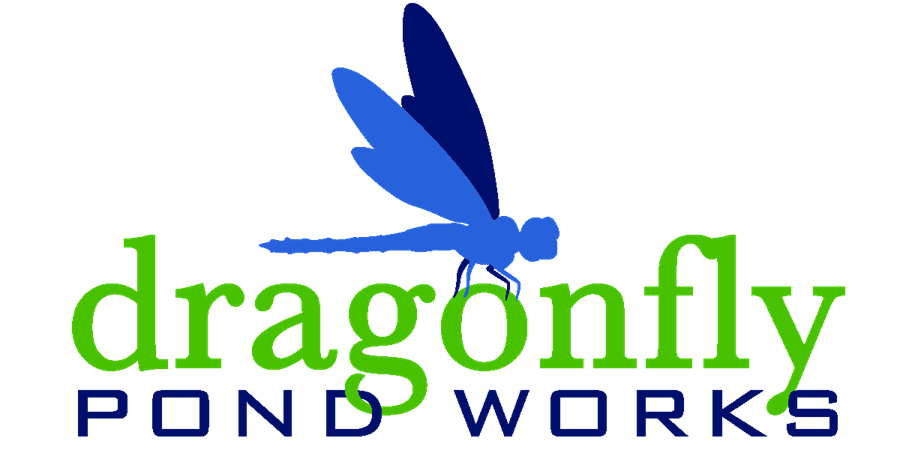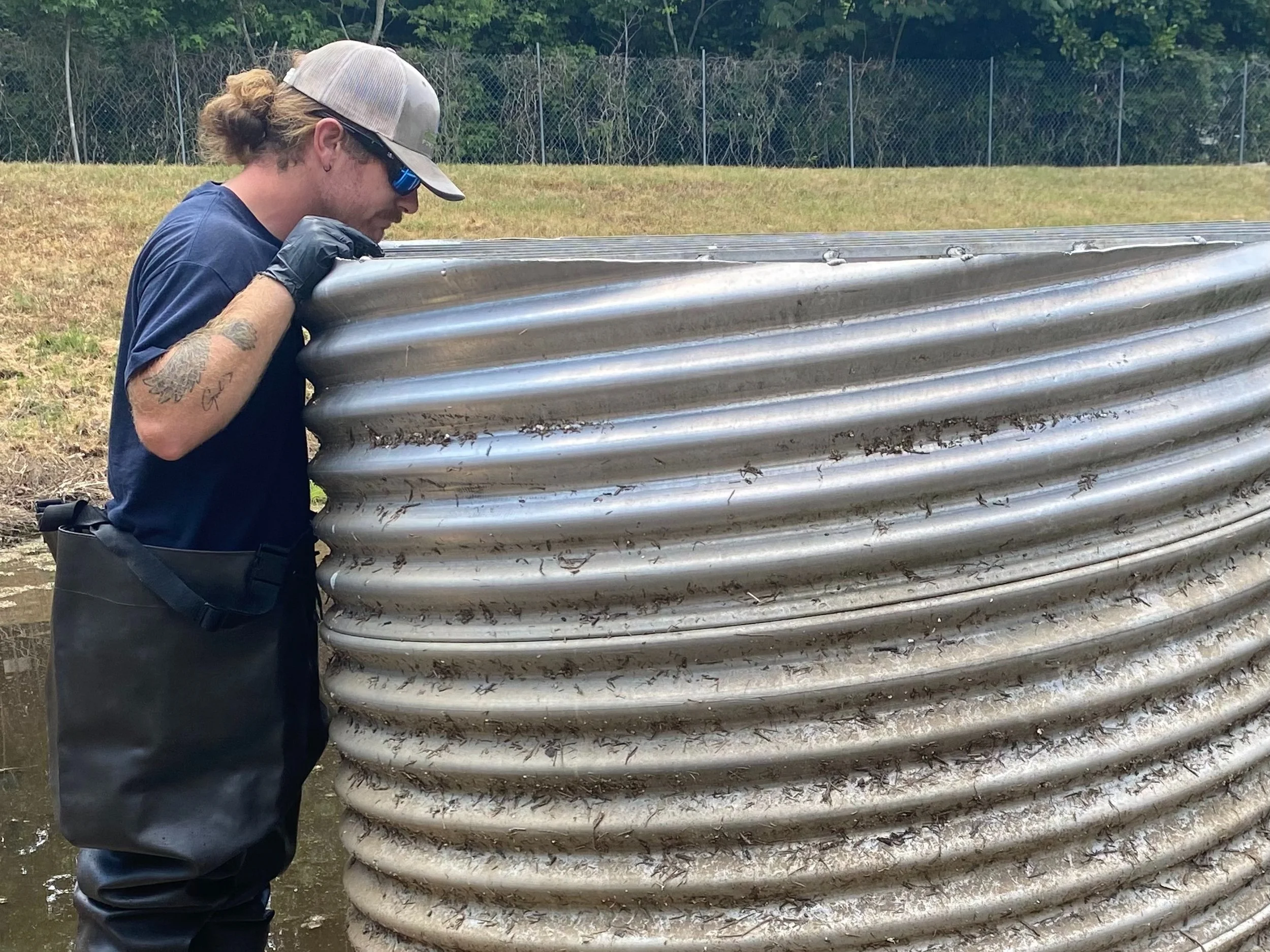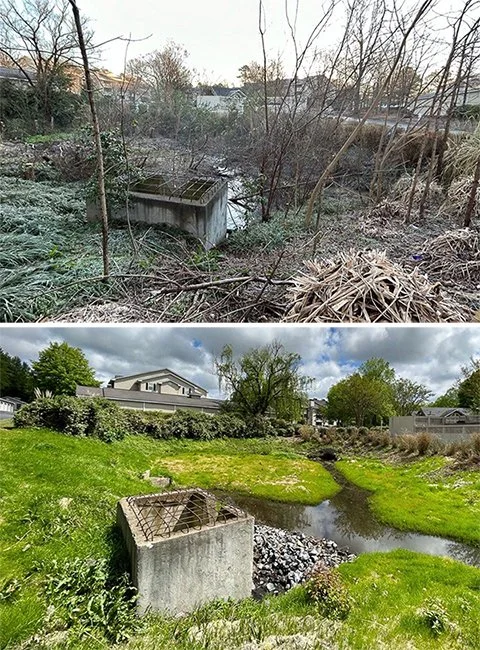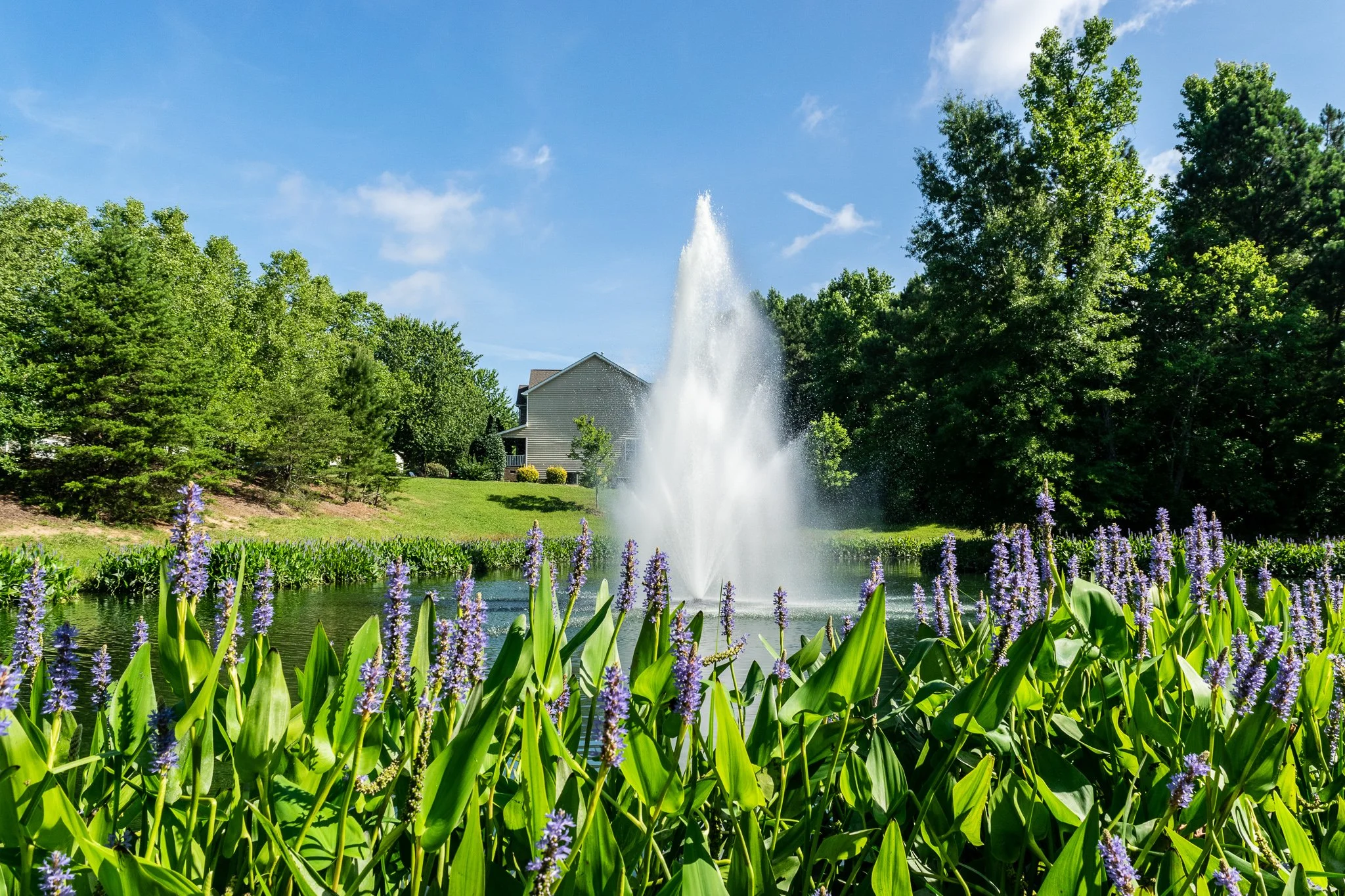Stormwater Ponds & Compliance: A Guide for Greensboro HOAs
By Dragonfly Pond Works – Stormwater Pond Management Experts Serving Greensboro, Winston-Salem & the Triad Region
The Hidden Role of Greensboro Stormwater Ponds
Drive through any Greensboro or Winston-Salem neighborhood and you’ll see ponds tucked behind clubhouses, along walking trails, or beside parking lots. They look beautiful, but they’re doing far more than adding curb appeal.
Those ponds are stormwater control measures (SCMs). SCMs are engineered systems designed to manage runoff, filter pollutants, and protect downstream waterways. For community associations and property managers, these are regulated assets that come with clear responsibilities under North Carolina Department of Environmental Quality (NCDEQ) and local municipal stormwater programs.
Unfortunately, many HOAs and property owners don’t realize that stormwater ponds are subject to routine inspection, reporting, and maintenance requirements. Treating them like “landscaping” features can lead to violations, unexpected repair costs, and even fines.
What Exactly Is a Stormwater Control Measure (SCM)?
A Stormwater Control Measure (SCM) is an engineered device that captures and treats stormwater runoff before it leaves your site.
Common SCMs in the Triad region include:
Wet retention ponds
Dry detention basins
Bioretention cells or rain gardens
Constructed wetlands
Sand filters and infiltration systems
Underground Systems
Each system is designed to remove sediment, reduce flooding risks, slow water flow, and protect local creeks and streams, like Buffalo Creek and the Yadkin–Pee Dee River Basin, from erosion and pollution.
But these systems only work as designed when properly maintained. Sediment buildup, overgrown vegetation, or clogged system components can quickly turn a compliant pond into a community risk.
The Regulatory Reality in the Triad
In the City of Greensboro and City of Winston-Salem, stormwater facilities are regulated under the NCDEQ Post-Construction Stormwater Program.
That means:
Every permitted SCM must be inspected at least annually.
The responsible party (usually the HOA, property owner, or management company) must keep inspection and maintenance records.
If an SCM fails or shows signs of neglect, the owner may receive a Notice of Violation (NOV) which often requires costly corrective work.
According to our field experience, most NOVs in the Triad stem from neglect, not design flaws. Overgrown basins, silted-out ponds, or clogged structures are the top issues we see.
“Even if your community’s stormwater permit predates your HOA’s involvement, your board is still legally responsible once ownership transfers.”
The Risks of Neglecting Ponds & Stormwater Devices
Neglecting pond maintenance can trigger several problems, including both financial and environmental issues:
Regulatory penalties: City inspectors can issue NOVs, leading to mandated repairs or civil fines.
Erosion & flooding: Sediment and vegetation reduce storage capacity, increasing flood risk.
Water quality decline: Algae blooms and mosquito growth rise when ponds stagnate.
Structural damage: Clogged risers or failing embankments require major repair or dredging.
Reduced property value: Unsightly ponds reflect poorly on the community’s reputation and maintenance standards.
Ignoring a pond today can cost your HOA thousands more tomorrow.
Turning Compliance Into a Greensboro Community Asset
Proactive stormwater maintenance doesn’t just prevent fines, it adds measurable value:
Financial protection: Routine inspections help detect small issues before they become major costly repairs.
Regulatory peace of mind: Detailed inspection reports satisfy local stormwater divisions, avoiding costly re-inspections.
Community appeal: Clean, functional ponds boost aesthetics and resident satisfaction.
Environmental benefit: Properly working SCMs reduce pollutants entering local waterways, protecting regional ecosystems.
When your HOA can show documented compliance, you’re not just maintaining a pond, you’re managing an asset.
“When your HOA treats its stormwater pond like an asset, you gain compliance, cost control, and community pride.”
How Dragonfly Pond Works Helps Triad HOAs Stay Compliant
At Dragonfly Pond Works, our Triad stormwater team partners directly with local municipalities, including the City of Greensboro Stormwater Management Division and Winston-Salem Stormwater/Erosion Control Division, to keep your property in full compliance.
Our services include:
Comprehensive annual inspections
Routine maintenance (algae control, vegetation management, trash and debris removal, outlet clearing)
Repair and restoration (bank stabilization, basin clearing, pipe repairs, dredging)
Compliance documentation tailored to municipal requirements
We help transform stormwater obligations into long-term community value.
Your Next Step: Make Your Stormwater System Work for You
Is your pond a compliance risk or a maintained community asset?
Don’t wait for the next inspection notice or storm event to find out.
👉 Request a Stormwater Site Assessment and let our Greensboro/Winston-Salem team ensure your ponds and SCMs are in full working order — safely, beautifully, and compliantly.
Stormwater Pond Routine Maintenance, Repairs, Reconstructions, & More
Learn about our stormwater corrective repair and reconstruction capabilities available across Winston-Salem, Greensboro, and beyond. Our routine stormwater pond maintenance services keep you stormwater devices healthy, compliant, and aesthetically pleasing.
Subscribe to our newsletter to receive informative and engaging news delivered right to your inbox.
Find us on Facebook, Twitter, Instagram, and LinkedIn for news, events, and more!
Dragonfly Pond Works provides specialized pond and stormwater maintenance services, reconstruction, compliance repairs, and more in Winston-Salem, Greensboro, Charlotte, Raleigh, Durham, and Wilmington, North Carolina, Greenville, Spartanburg, Columbia, Charleston, Myrtle Beach, South Carolina, Tampa, Sarasota, Naples, Fort Myers, Florida, Atlanta, Athens, Georgia, DC Metro, Alexandria, Arlington, Northern Virginia, and Rockville, Gaithersburg, and surrounding Maryland.



